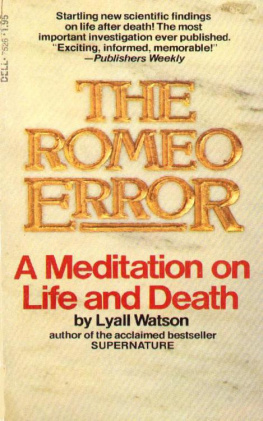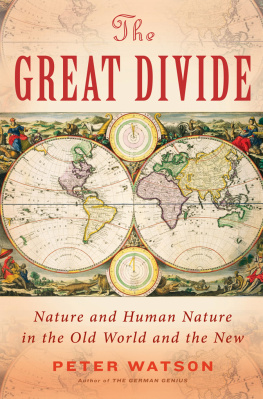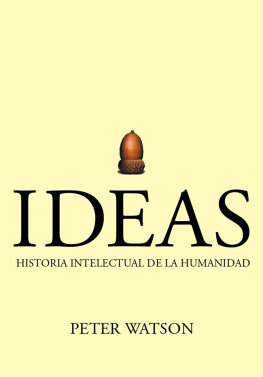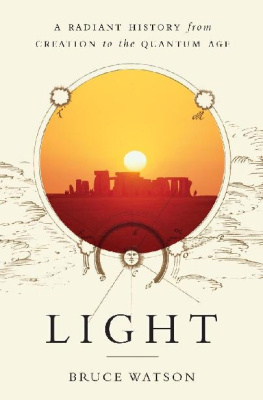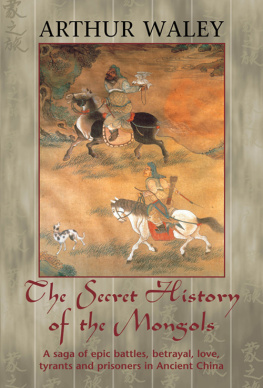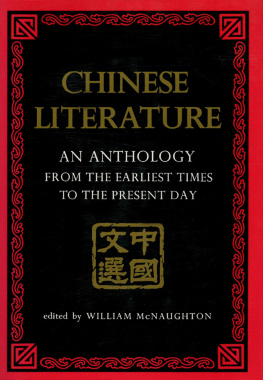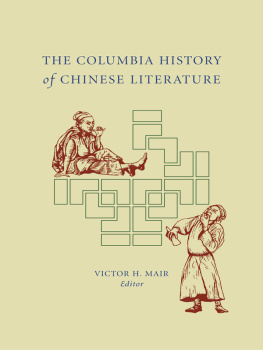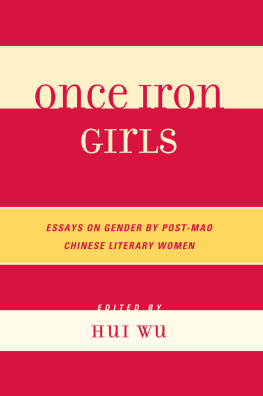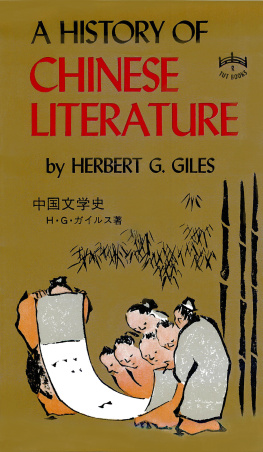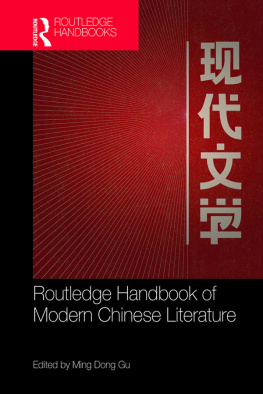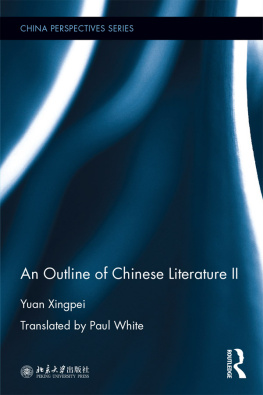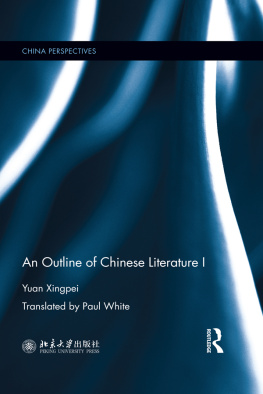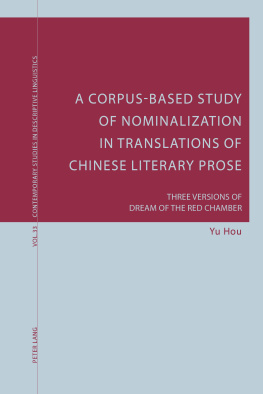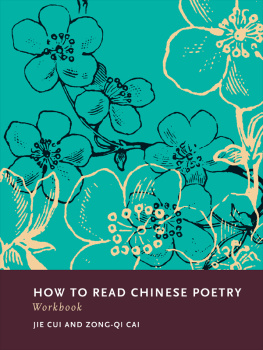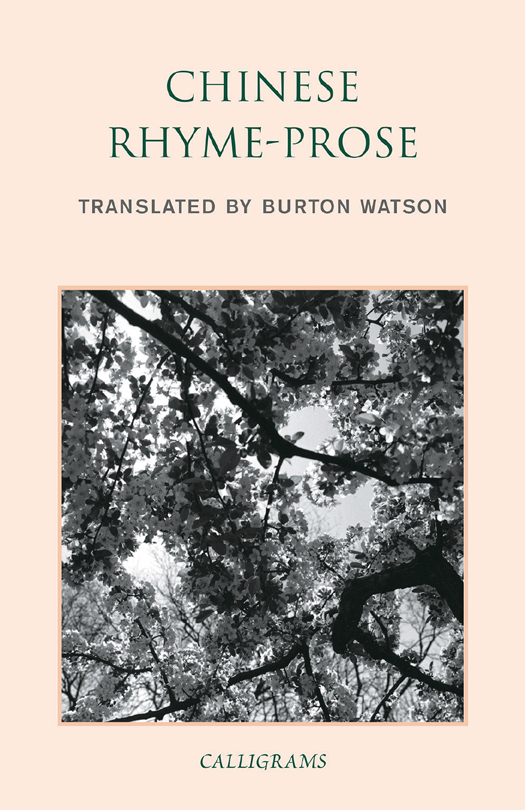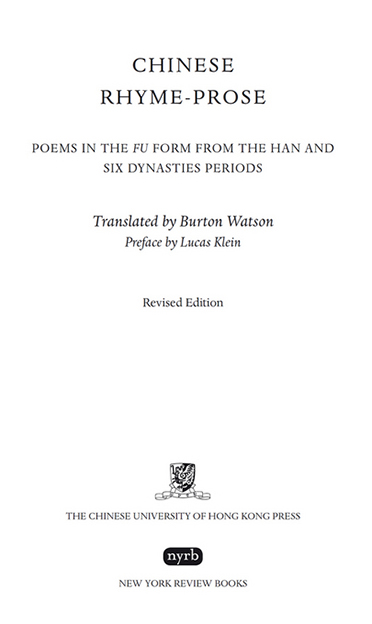Calligrams
Series editor: Eliot Weinberger
Series designer: Leslie Miller
Chinese Rhyme-Prose:
Poems in the Fu Form from the Han and Six Dynasties Periods
Translated by Burton Watson
Preface by Lucas Klein
1971 by Columbia University Press
Revised edition copyright 2015 by Burton Watson
Preface copyright 2015 by Lucas Klein
All rights reserved.
Parts of the Preface originally appeared in World Literature Today.
A catalog record for this book is available from the Library of Congress.
ISBN: 978-962-996-563-1
Published by:
The Chinese University Press
The Chinese University of Hong Kong
Sha Tin, N.T., Hong Kong
www.chineseupress.com
New York Review Books
435 Hudson Street, New York, NY 10014, U.S.A.
www.nyrb.com
eISBN 978-962-996-930-1
v3.1
To the memory of
Arthur Waley
Preface
Teaching from Eliot Weinbergers Nineteen Ways of Looking at Wang Wei, I pointed the class to Burton Watsons translation Deer Fence, from 1971:
Empty hills, no one in sight,
only the sound of someone talking;
late sunlight enters the deep wood,
shining over the green moss again.
One student, a young woman from Shanghai exposed to translation theory and a traditionalist sense of poetry in English, scoffed: Thats it?
I remember a college professor of mine relating how her graduate advisor, a meticulous philologist whose translations overflow with annotation, also disparaged Watsons translations, saying he probably typed up his first drafts and sent them to his publisher without looking at them again. But I also remember William Butler Yeats, from Adams Curse:
A line will take us hours maybe;
Yet if it does not seem a moments thought,
Our stitching and unstitching has been naught.
For all the work it takes, Yeats says, to be a poet is still to be thought an idler by the noisy set / Of bankers, schoolmasters, and clergymen / The martyrs call the world. Throw certain readers of translation into that noisy set, for the fact is that beneath the surface simplicity of Burton Watsons lines hide not only years of accumulated scholarly expertise, but the internalized discipline of the contemporary American idiom, as well.
Since Chinese poetry started being translated into English, poets and sinologists have presented poetry and sinology as if they were locked in eternal conflict. In 1921 Amy Lowell said, Chinese is so difficult that it is a life-work in itself, so is the study of poetry. A Sinologue has no time to learn how to write poetry; a poet has no time to learn how to read Chinese; in 1958 George Kennedy said of Ezra Pound, Undoubtedly this is fine poetry. Undoubtedly it is bad translation; drawing a distinction between the poet-translator and critic-translator, James J. Y. Liu wrote in 1982 that while the latters primary aim is to show what the original poem is like, as a part of his interpretation, the former is a poet or poet manqu whose native Muse is temporarily or permanently absent and who uses translation as a way to recharge his own creative battery [and] write a good poem in English based on his understanding or misunderstanding of a Chinese poem, however he may have arrived at this; and in 2004, against those who believe that translations should consist of word-for-word cribs in which syntax, grammar, and form are all maintained, and in which the translator is merely a facilitator who allows the original poem to speak for itself in a new language, Tony Barnstone posited that the literary translator is like the musician who catalyzes the otherwise inert score that embodies Mozarts genius. Fidelity, true fidelity, comes from a musicians deeper understanding of the music. The genius of Watsons translations is that they reconcile the rift between poetry and scholarship.
As Weinberger points out in Nineteen Ways, Watson was the first scholar whose work displayed an affinity with the modernist revolution in American poetry: absolute precision, concision, and the use of everyday speech, particularly impressive at a time when most Anglophone scholars of Chinese ignored, or were actively hostile to modern poetry (Many still are, Weinberger adds). That precision, concision, and everyday speech deepened what T. S. Eliot called Ezra Pounds invention of Chinese poetry for our time. Though Eliot acknowledged it to be an illusion (an illusion which is not altogether an illusion either), he explained that when a foreign poet is successfully done into the idiom of our own language and our own time, we believe that he has been translated; we believe that through this translation we really at last get the original. His translations seem to beand that is the test of excellencetranslucencies. This is the quality that compelled my student, expecting more audible poetic devices, to scoff; but she should know that this quality is itself a poetic device, honed from Watsons own attentive readings in the entwined lineage of American and Chinese poetry, particularly as seen in Ezra Pound and Kenneth Rexroth. Pay attention, and you can hear it in the echoing ohs and whispering esses that turn only the sound of someone talking, above, into something like onomatopoeia. Watson is perhaps the only translator of Chinese one can imagine writing an editor of a literary journal, as he did, to say, I cant tell you how honored I am to be in the same magazine as Charles Reznikoff. Watson sent Pound some of his earliest poetry translations (Pound wrote back, but made no comment on the versions), and he had drafts edited by Joanne Kyger, Cid Corman, Gary Snyder, and Allen Ginsberg.
Watson is not the poet-translator largely ignorant of Chinese as Pound or Rexroth were. Since the 1970s he has lived mostly in Japan; nearing ninety, he still spends hours each morning and evening on translation work. Born in 1925, he was first exposed to Asian languages growing up in New Rochelle, NY, when workers at the local laundry gave him litchi nuts, jasmine tea, and illustrated Chinese magazines; later, a high school dropout in the Navy stationed in the South Pacific, he picked up some Japanese to help him on shore leave. After being discharged, he studied at Columbia University, both as an undergraduate and for his PhD (completed in 1956), under L. Carrington Goodrich and Chi-chen Wang, and was later colleagues there with C. T. Hsia. As a scholar, Watson is known for broad cartographies such as Early Chinese Literature (1962), ranging from the eleventh century B.C . to the third century A.D ., and Chinese Lyricism: Shih Poetry from the Second to the Twelfth Century (1971). These books are authoritative and insightful as overviews and introductions from an era in which few students studied Chinese and fewer had access to it as a living language, yet they are still useable in or out of the classroom today. Nor is their authoritativeness authoritarian; in Early Chinese Literature


